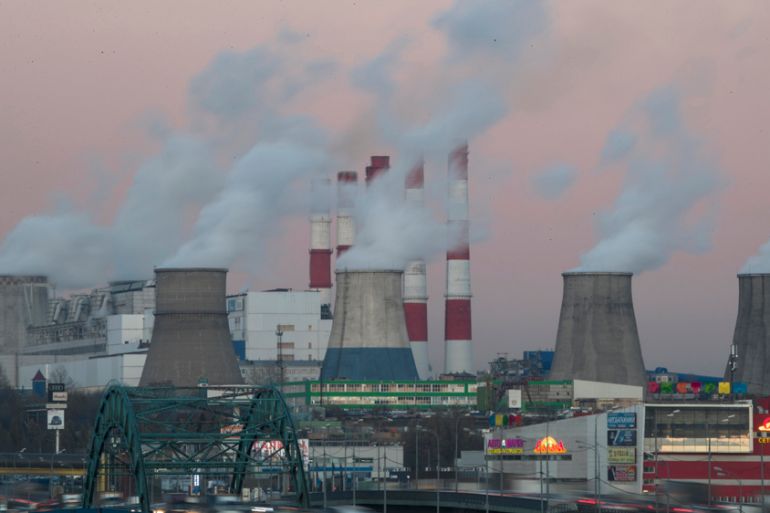UN chief: Climate change ‘running faster than we are’
Countries failing to live up to commitments under the 2016 Paris agreement to keep global temperature rise at bay.

UN Secretary-General Antonio Guterres said the political will to fight climate change has faded at the same time as it is getting worse for those feeling its effects.
Guterres made the comments after arriving in New Zealand on Sunday where addressed the media alongside Prime Minister Jacinda Ardern in Auckland. Guterres plans to spend three days there as part of a trip to the South Pacific to highlight climate change’s global threat.
Keep reading
list of 4 itemsInside the pressures facing Quebec’s billion-dollar maple syrup industry
Coral reefs around the world experiencing mass bleaching, scientists say
Mass evacuations as floods in Russia’s Kurgan region set to peak
“Climate change is running faster than what we are … The last four years have been the hottest registered,” Guterres said.
Countries are not living up to their commitments under the 2016 Paris Agreement to keep the global temperature rise to below two degrees Celsius above pre-industrial levels, he said.
“We are not on track to achieve the objectives defined in the Paris Agreement, and the paradox is that as things are getting worse on the ground, political will seems to be fading,” he added.
A string of apocalyptic reports on the state of the planet is bringing home the need for concrete steps to tackle climate change and environmental catastrophe.
One million species are on the brink of extinction. Carbon dioxide emissions continue to rise, pushing targets from the Paris accord further out of reach.
Guterres commended Ardern for introducing an ambitious bill last week aiming to make New Zealand mostly carbon neutral by 2050 while giving some leeway to farmers.
A turning point?
He noted that Pacific Island nations are on the front line of climate change.
“We cannot allow for runaway climate change,” he said. “We need to protect the lives of our people and we need to protect our planet.”
Guterres’ trip comes ahead of the Climate Action Summit he plans to convene in September in New York City.
In Fiji, Tuvalu and Vanuatu, Guterres will meet with families whose lives have been upended by cyclones, flooding and other extreme weather events.
Pacific island countries face an especially dire risk from climate change because of sea level rise. In some cases, low-lying countries could disappear completely.
Fiji is working to build a coalition of more than 90 countries from the Caribbean, Africa and Asia facing the climate crisis.
“We hope that the secretary-general will draw far more inspiration from his first visit to go further, faster and deeper with the climate summit,” said Fiji’s UN Ambassador Satyendra Prasad. “We are very hopeful that the climate summit will mark a turning point.”
‘Gross negligence’
Ardern, speaking at the joint press conference in Auckland, called climate change “the biggest challenge” facing the global community and said it would be “gross negligence” to avoid the issue.
But the United Nations‘ push on climate change is shaping up amid geopolitical shifts: the United States under President Donald Trump pulled out of the Paris Agreement, giving China more space to assert its views.
Trump announced in 2017 the US would exit the landmark Paris deal, but under its terms the withdrawal will only become effective in 2020.
The US administration is not taking part in summit preparations but has not said it will skip the event, according to UN officials.
Guterres’ mission may also be further complicated by Trump’s nomination of Kelly Knight Craft as UN ambassador.
Craft, who is married to a major coal magnate, raised eyebrows for declaring that she believed “both sides” of climate science, indicating she may well be out of sync with the UN on the issue.
The summit is seen as critical because of US resistance to discussing climate change at other forums, including the G7 and G20, and again last week at a meeting of the Arctic Council in Finland.
“What people are looking for is countries to commit to major ambition increases in 2025 and 2030 at the summit or in 2020,” said Nick Mabey, head of the E3G climate think-tank.
This should include legally binding targets for countries to phase out coal, become climate neutral, and invest in climate resilience, especially for the poorest countries, he added.